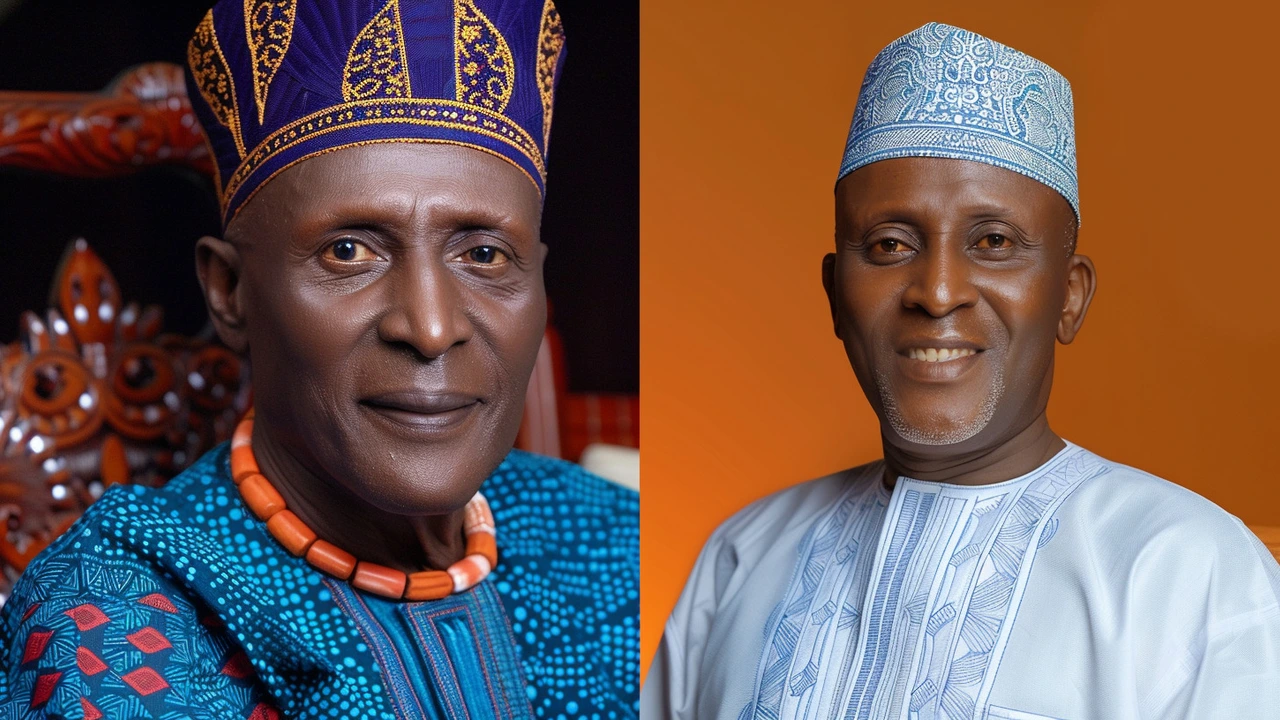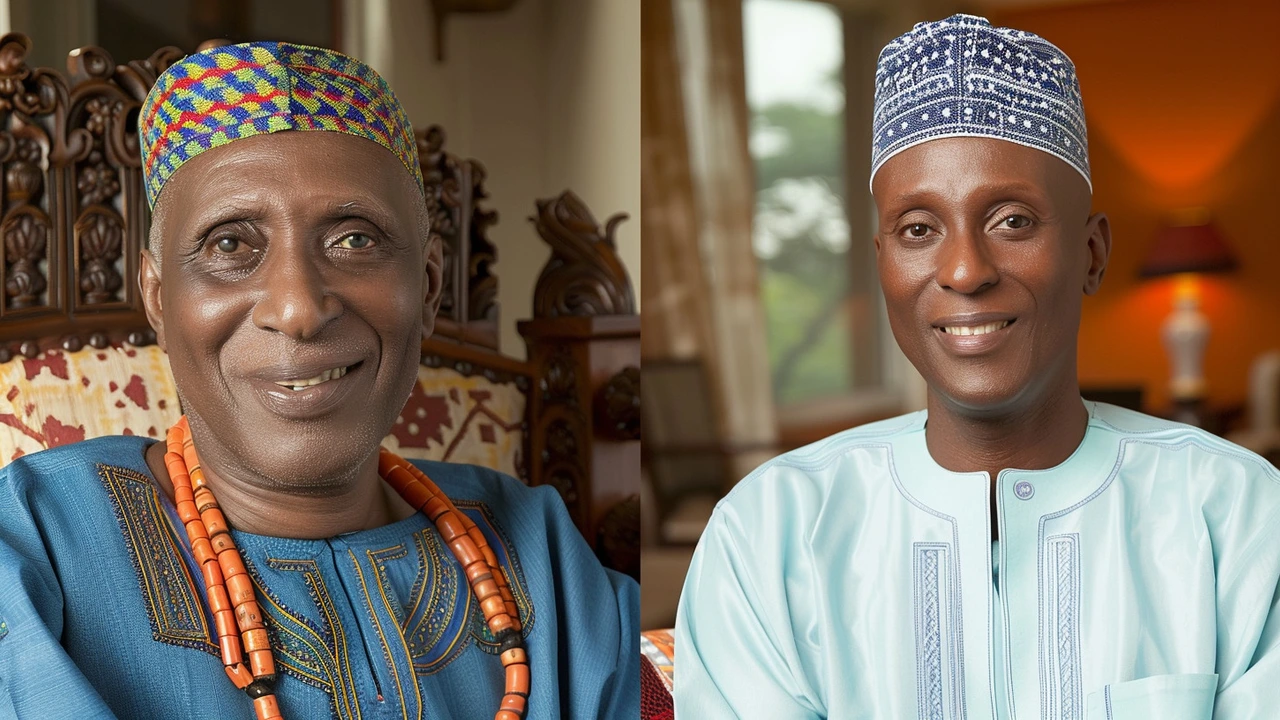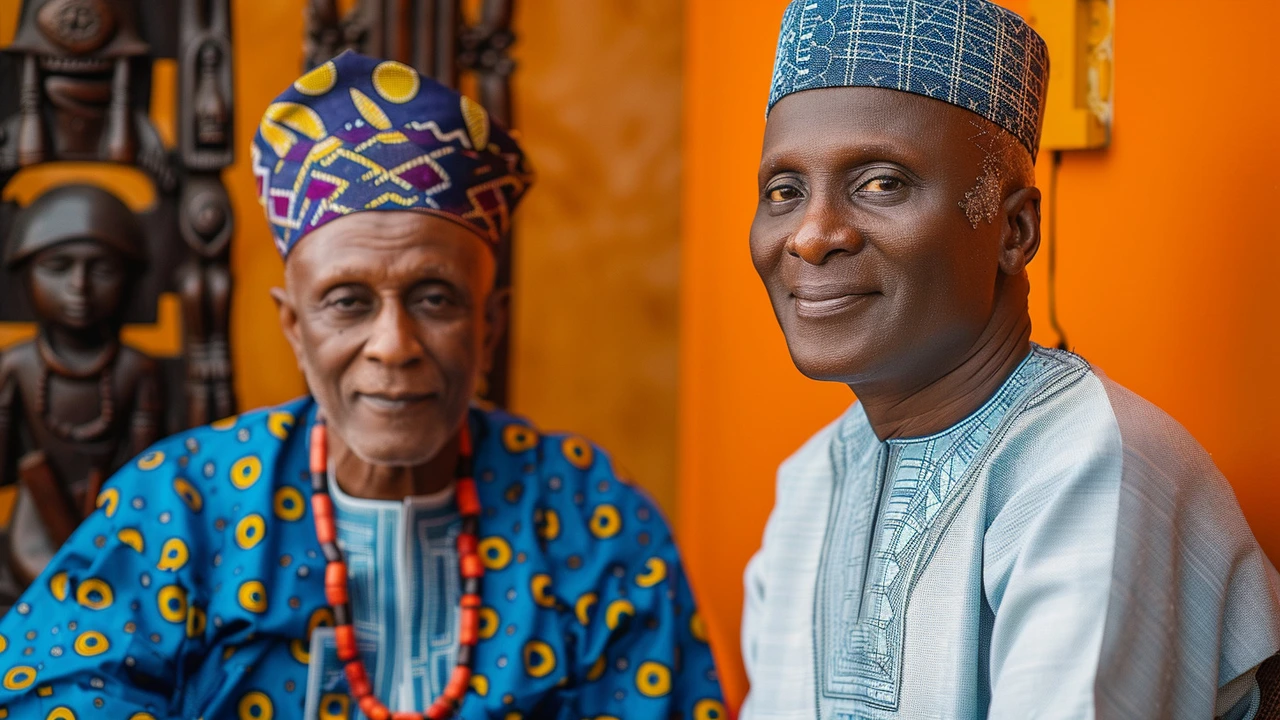RCCG Pastor Soun of Ogbomoso Queries Chief Imam Over Unannounced Hajj Pilgrimage
 Jun, 29 2024
Jun, 29 2024
The delicate fabric of religious and traditional leadership in Ogbomoso, an ancient city in Nigeria, has been stretched recently over a disagreement between two prominent figures. The Soun of Ogbomoso, Oba Afolabi Ghandi Olaoye, who is also an ordained pastor with the Redeemed Christian Church of God (RCCG), has formally issued a query to the city's Chief Imam, Sheikh Taliat Yunus Olusina Ayilara.
According to the details revealed, the focal point of this tension centers around the Chief Imam's recent Hajj pilgrimage to Saudi Arabia. An event that ordinarily symbolizes religious devotion has turned contentious due to a pre-existing agreement supposedly breached by the Chief Imam. Dated June 10, 2024, the query from Oba Olaoye expresses both disappointment and concern over what he perceives as the Chief Imam's failure to uphold his part of their understanding. This agreement required Sheikh Ayilara to notify the Soun before departing Ogbomoso for any purpose, religious duties like the Hajj pilgrimage included.
The Soun's letter alleges an additional infraction. It points out that the Chief Imam unilaterally appointed an acting Chief Imam to stand in his stead during his absence. This action, according to Oba Olaoye, further violates their agreement regarding the notification of the Soun about significant decisions.
However, the response from the Chief Imam adds another complex layer to this issue. Sheikh Ayilara has taken a firm stand, contesting that the position of Chief Imam is not traditional and thus not subject to the authority of the Soun of Ogbomoso. Asserting his independence, he has stated that the Soun lacks the jurisdiction to question his actions in this manner.
Sheikh Ayilara also pointed out that a court case is currently underway between the two parties. This legal backdrop adds a significant dimension to the story, as it highlights the ongoing struggle for authority and recognition. The Chief Imam has called for the Soun to respect the court's jurisdiction and abstain from actions that could potentially influence the ongoing legal proceedings.
For the community in Ogbomoso, this dispute may be seen as more than just a simple disagreement. It stands as a reflection of the broader dynamics at play between religious and traditional authorities in contemporary society. As the situation continues to evolve, it underscores the need for mutual respect and understanding in maintaining social harmony.
Historical Context and the Role of Traditional and Religious Leaders
Ogbomoso, like many other Nigerian towns, operates within a dual governance structure where traditional and religious institutions both play pivotal roles. Historically, the position of the Soun has been a significant traditional chieftaincy role, one with deep roots and considerable influence over the community.
In contrast, the position of the Chief Imam, while equally respected, is primarily religious. The Chief Imam's role includes leading prayers and offering spiritual guidance to the Muslim community. These dual structures, while supportive, sometimes find themselves at a crossroads, especially in modern settings where boundaries and responsibilities can blur.
The current conflict between the Soun of Ogbomoso and the Chief Imam can thus be seen as a microcosm of this broader dynamic. Each leader seeks to assert their influence and maintain control over their respective domains, leading to inevitable clashes when the delineations of power overlap.
The Nature of the Pre-existing Agreement
Details of the agreement mentioned in the query reveal an element of control and oversight expected by the Soun over significant departures and actions taken by the Chief Imam. This agreement, though not entirely unusual in traditional settings, seemingly places the Chief Imam in a position of subordination contrary to his independent religious role.
Sheikh Ayilara’s assertion that his position does not fall under the jurisdiction of the Soun points to a crucial aspect of religious autonomy. Positions like that of the Chief Imam often require a level of independence to function effectively within their spiritual mandate. Hence, the requirement to notify a traditional leader before undertaking religious duties such as the Hajj pilgrimage calls into question the balance of power and respect for religious independence.

The Legal Complications
The ongoing court case between the Soun and the Chief Imam adds a critical legal dimension to the dispute, underscoring the legal boundaries and interpretations of authority. This case will likely set a precedent for the future interactions between traditional and religious institutions in Ogbomoso.
In such cases, the judiciary's role becomes paramount in clarifying the extent of powers and the limitations inherent within the different roles each leader holds. Asserting the legitimacy of agreements and the jurisdiction over individual actions becomes a matter of legal interpretation and judicial balance.
If the court sides with the Chief Imam, it could establish a clear demarcation of autonomy for religious leaders, thereby limiting the traditional authority's reach. Conversely, if the judgment favors the Soun, it might reinforce the traditional hierarchy and continuity of such agreements that place religious roles under customary oversight.
The Community's Perception
The Ogbomoso community, steeped in both traditional and religious heritage, watch these developments closely. Such disputes can significantly impact the social fabric, influencing perceptions and altering the dynamics of community leadership.
For many in the community, these leaders represent stability and continuity of their cultural and religious identity. Any perceived discord between them can lead to a sense of unease and uncertainty. The community's reaction and acceptance of the eventual outcome of this dispute will play a critical role in maintaining harmony and respect within Ogbomoso.

Conclusion
The disagreement between the Soun of Ogbomoso and the Chief Imam over the Hajj pilgrimage notification raises essential questions about the balance of power, the role of traditional agreements, and the independence of religious authority. It reflects the complexities inherent in a society where traditional and religious structures coexist and often overlap.
As the legal proceedings continue and both parties await a resolution, it is a reminder of the need for mutual respect, understanding, and a judicious approach to conflict resolution. The outcome of this dispute will not only affect the individuals involved but will set a precedent for future interactions between traditional and religious leaders in Nigeria.